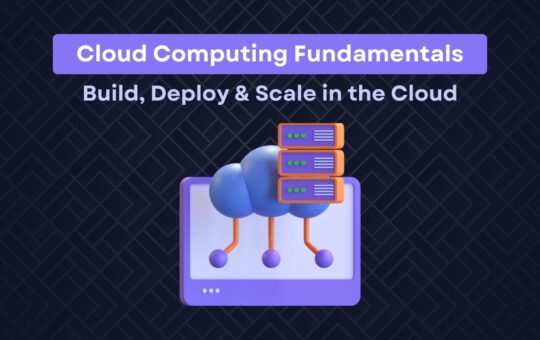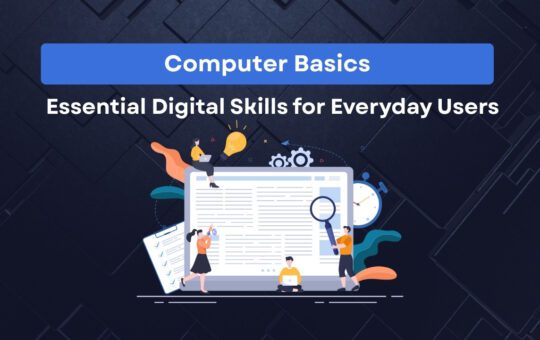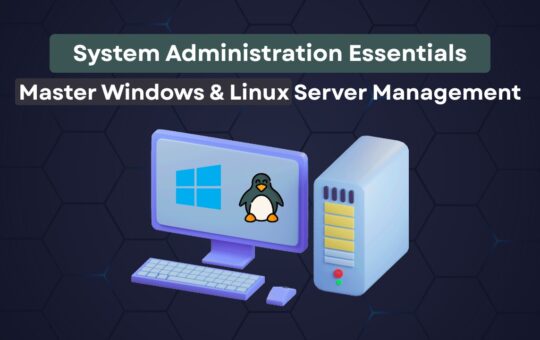
Operating Systems: Concepts, Architecture & Real-World Applications
Operating systems are the core software that make all modern computing possible — managing hardware, running applications, and coordinating processes. This in-depth Operating Systems course is designed to help learners understand the architecture, components, and functions of OS platforms like Windows, Linux, and macOS.
You’ll begin with foundational concepts such as system architecture, the role of the kernel, and the boot process. The course then dives deep into essential areas like process management, memory allocation, file systems, I/O handling, and security mechanisms. Through real-world examples and visual explanations, you’ll learn how these concepts apply across different operating systems.
Hands-on labs and simulations will give you practical experience with command-line tools, task managers, and virtual machines. You’ll explore multitasking, threading, CPU scheduling, and virtual memory — topics that are crucial for programmers, system administrators, and technical interview candidates. You'll also gain insight into how OS design impacts performance, reliability, and system stability.
By the end of the course, you'll have a deep understanding of how operating systems work under the hood and how to work with them effectively — whether you’re developing applications, managing systems, or pursuing advanced computer science topics.
Curriculum
- 0m Duration
Retake Course
This course includes
This course includes
Understand what operating systems are and how they work
-
Explore kernel architecture, process management, and memory systems
-
Compare Windows, Linux, and macOS in key OS functions
-
Learn about scheduling, threading, file systems, and device management
-
Hands-on exercises using terminal commands and virtual machines
-
Introduction to security, permissions, and OS-level networking
-
Great foundation for CS students, IT professionals & developers
-
Includes simulations, quizzes & Certificate of Completion
Related Courses
Retake Course
Retake Course
Retake Course
Deleting Course Review
Course Access
This course is password protected. To access it please enter your password below:


